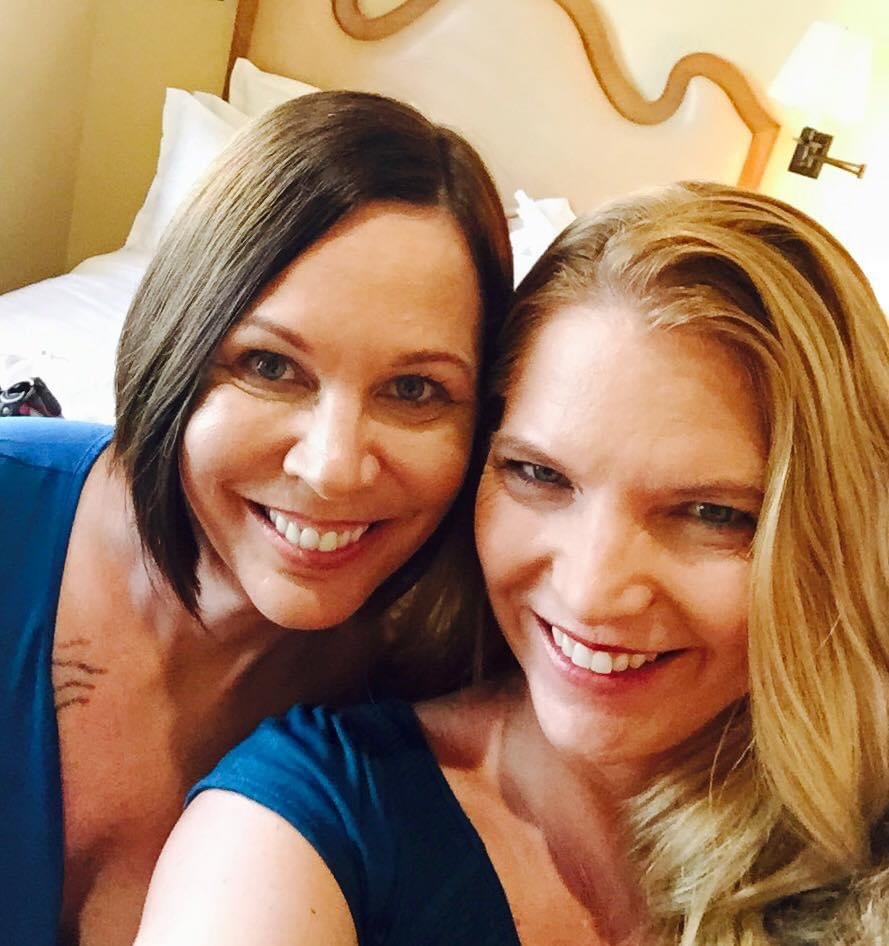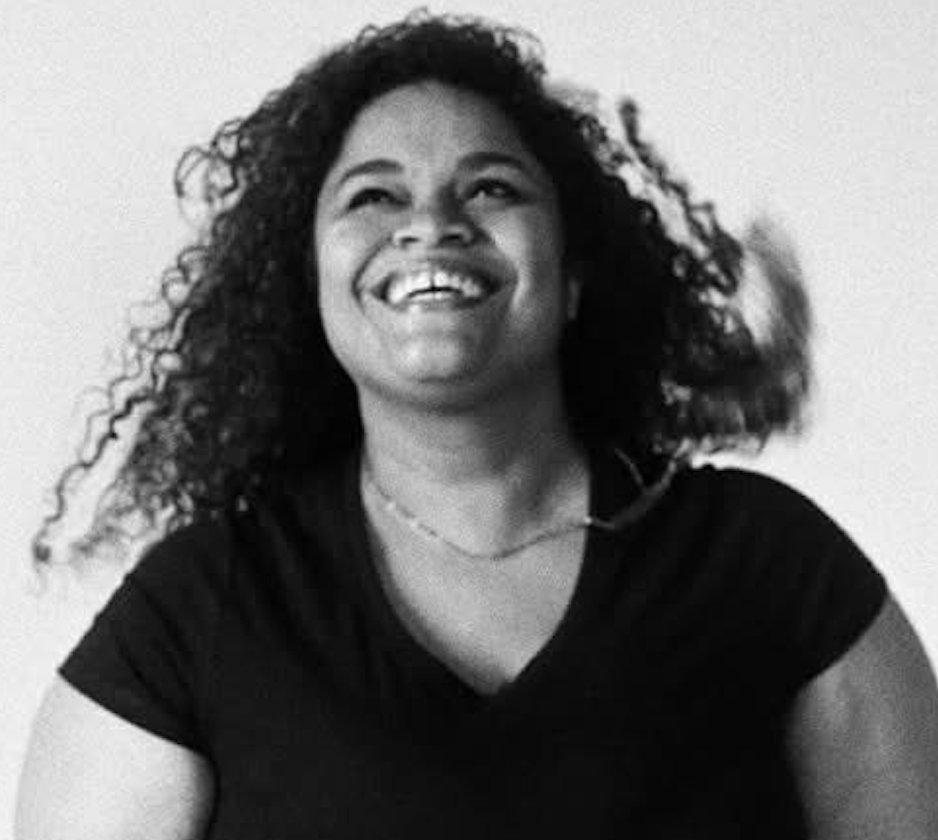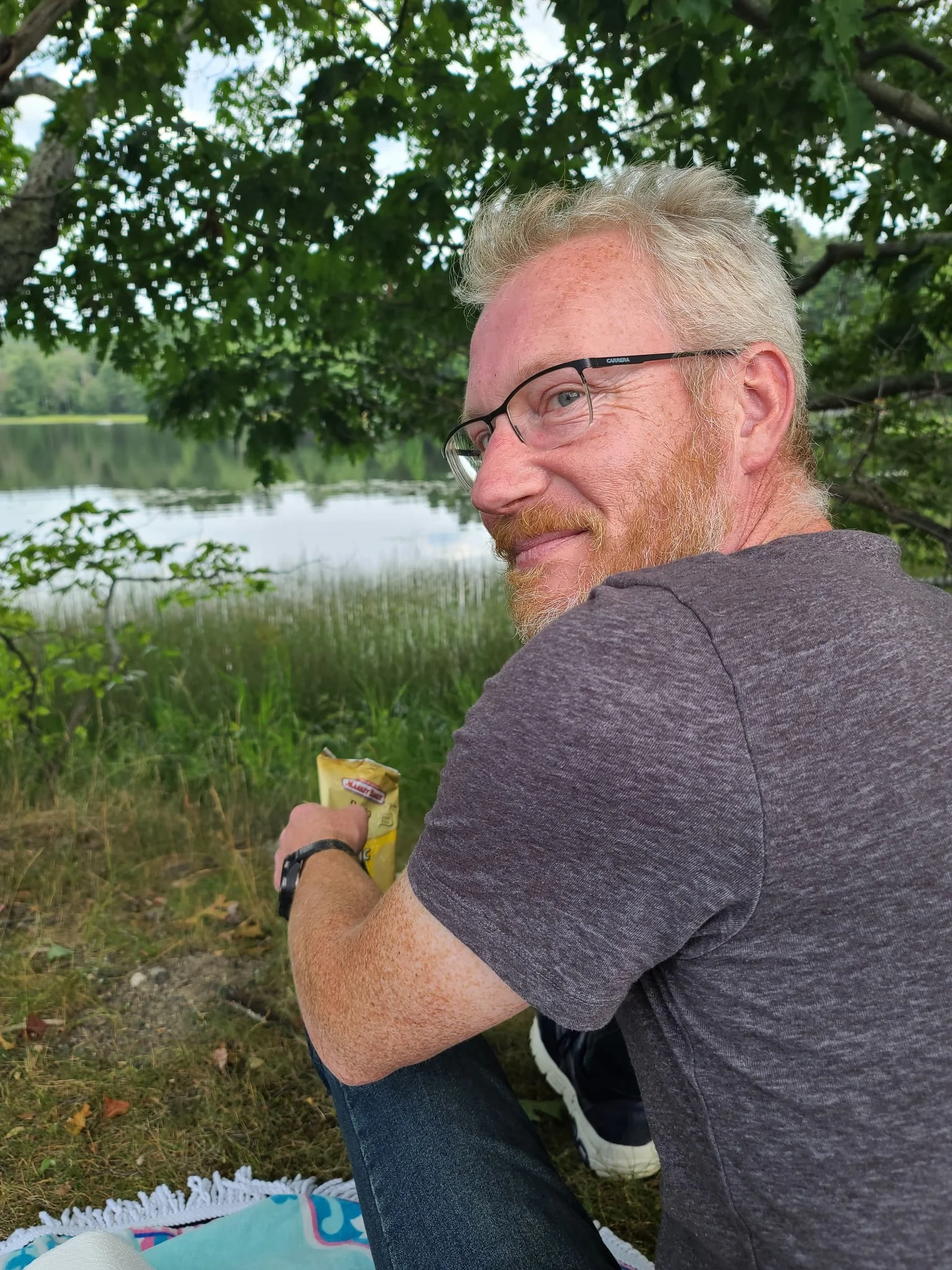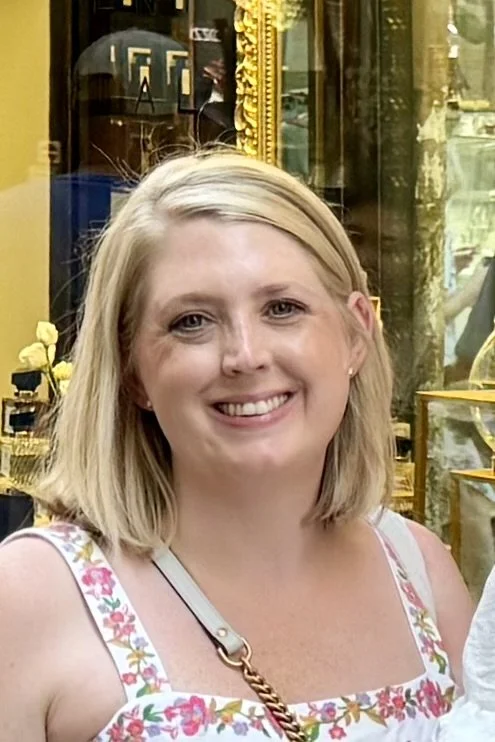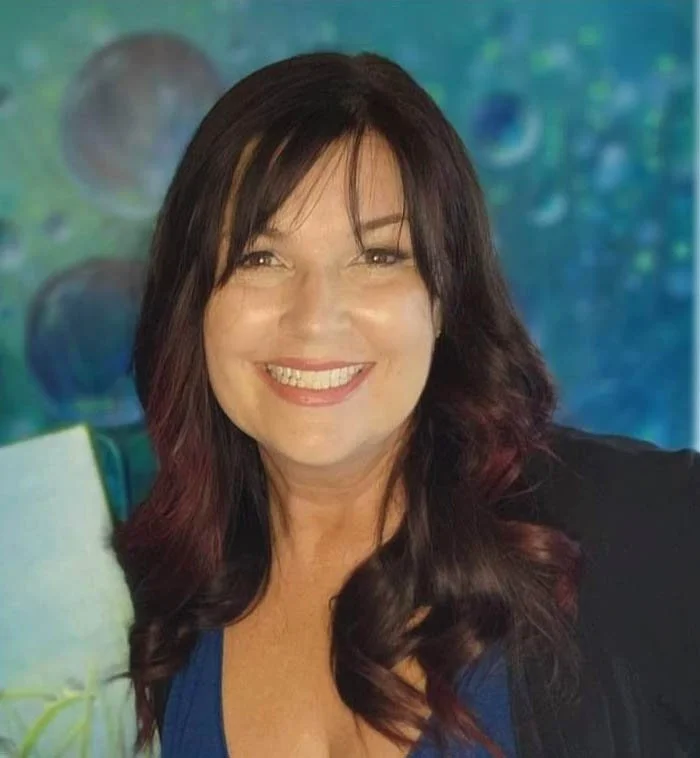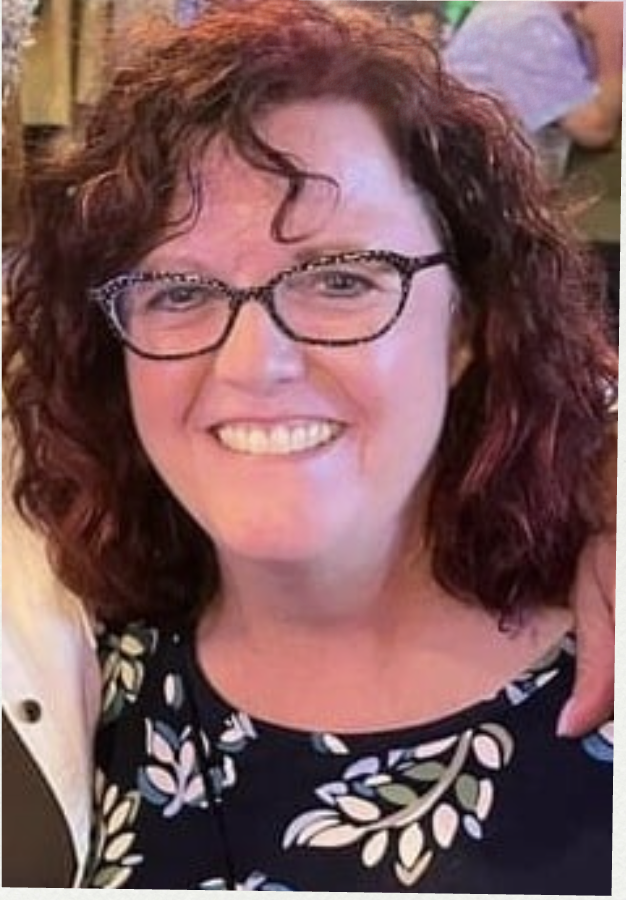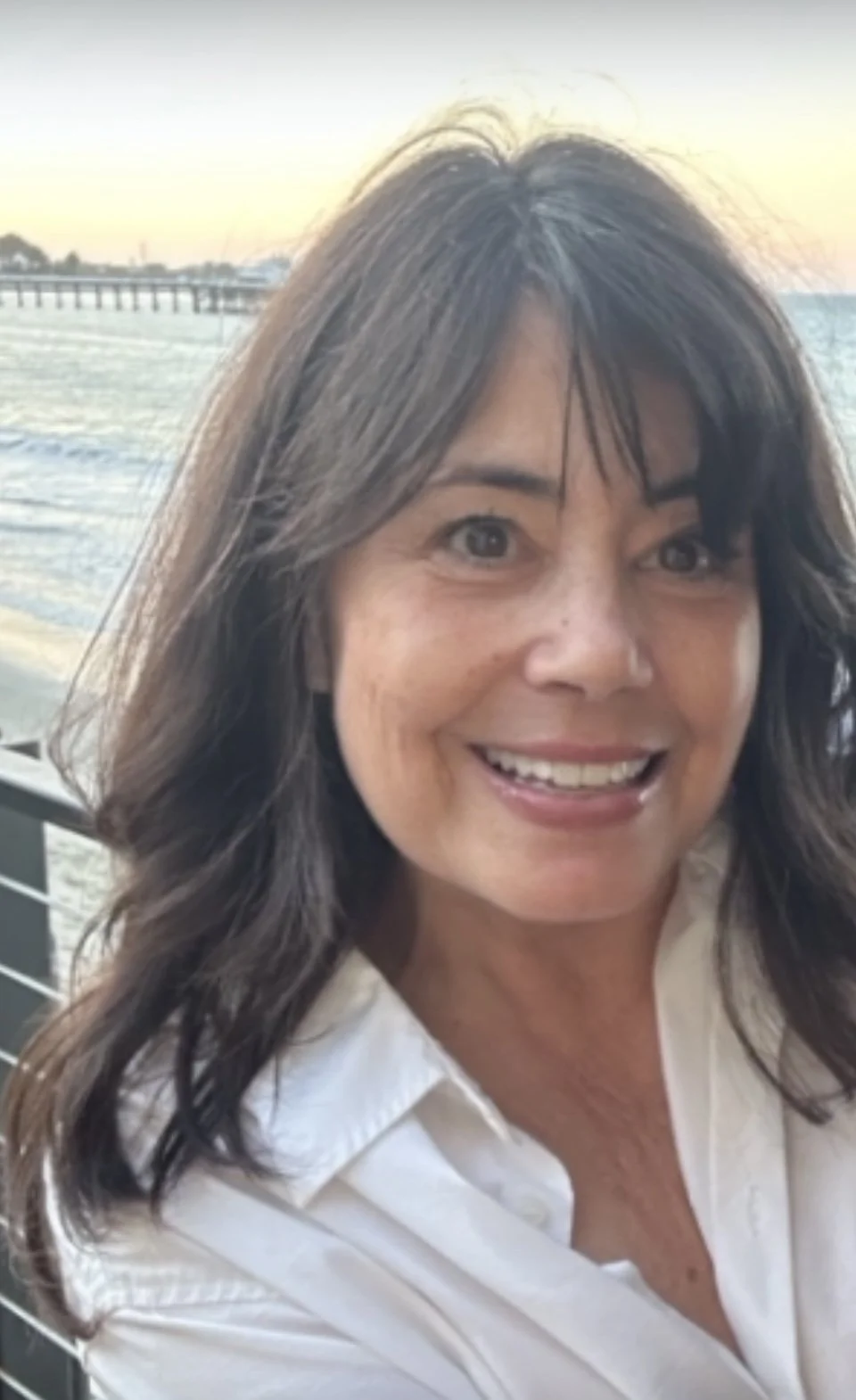
Adoption: The Making of Me: An Oral History of Adoptee Stories
On this podcast, two adult adoptees discuss all things adoption from the adoptee perspective.
Latest Episodes
S11, Ep. 33: Jackie
Jackie’s life and work are rooted in the profound belief that every individual deserves a "brave space" to show up authentically, fully, and without judgment. As the Executive Director of a Hospice Home and the founder of Lega-C Healing by Jackie, she dedicates her days to guiding others through life’s most delicate transitions with grace, intuition, and deep compassion.
Her professional path is inextricably linked to her extraordinary personal journey. A survivor of orphan trafficking from the Dominican Republic under the guise of international adoption, Jackie was brought to the United States as a child, after the death of her mother, separated from her twin and everything she knew. She spent years navigating the complexities of identity and belonging, a quest that eventually led to a series of powerful reunions: first with her U.S.-based siblings at age nineteen, and later with her twin, her biological father, and her remaining siblings at thirty-two.
These experiences of loss and reclamation shaped her into a gifted Community Builder, Death Doula, and intuitive healer. Jackie understands the weight of being "un-homed" and has turned that history into a sanctuary for others, helping them find peace and presence even in the face of the unknown.
Beyond her clinical and spiritual leadership, Jackie is a mother of three, a wife, and a dedicated artist. She finds her own healing and inspiration in nature, whether she is exploring the outdoors or translating the beauty of the world into her creative work. Her life is a living testament to the power of resilience and the enduring legacy of healing.
S11, Ep. 32: Dean
Born in England to a young American mother, Dean was adopted by a loving English couple who already had another, separately adopted son. Fully aware of being adopted from an early age, both siblings struggled for a sense of identity, and tension was ever-present in the family.
Eventually, at age 33, Dean decided to attempt to find and connect with his birth mother and was able to do so at age 42. Reunification went very well for a few years, but eventually the relationship became toxic, and Dean decided to move on.
S11, Ep. 31: Mindy
Relinquished at birth, Mindy was the only girl and the oldest child in her family, learning at age five that she had been adopted. Her childhood was marked by serious anxiety and feelings of being an outsider while also losing herself in the role she fulfilled as “Mindy”.
Finding her maternal bio-family in her mid-thirties helped her to solve some of the mystery behind her abandonment. After the tragic passing of both of her adoptive parents when she was forty-three, Mindy began coming to terms with her origins, experiences, and losses.
As age fifty approached, she began connecting with online adoption communities, asking questions, and coming out of the fog. Finding and connecting with her paternal half-siblings during this time has helped her know what it feels like to belong. While there has been a lot of pain in her life, Mindy believes that practicing gratitude has been key to where she is on her journey toward healing.
S11, Ep. 30: Laura
Laura was born to teen parents in South Carolina in May 1984 and was adopted through Catholic Charities by a wonderful and loving couple who could not have biological children. An adopted brother joined the family seven years later. She always knew she was adopted, and while adoption was spoken about openly and positively, it was understood by both siblings that searching for biological family would not be supported.
The birth of Laura’s second child sparked a curiosity to begin the search through an ancestry kit. With the help of a search angel, she was able to identify her biological parents and connect with aunts and an uncle on both sides of her biological family. Reunion has brought answers to many questions, healing, and a continuing unpacking of issues that have always been nagging but not understood.
Today, Laura lives with her husband and three children and is a child welfare attorney.
S11, Ep. 29: Alana
Alana Godin, born in 1966 in Vancouver, British Columbia, is an adoptee raised in a family whose mother, after three sons, had longed for a daughter. Growing up, Alana struggled to fit the role imagined for her but remained deeply grateful to her adoptive parents, whose support later allowed her to keep and raise her own child.
As a teenager, Alana had to navigate adulthood early, becoming pregnant and marrying young, but it was the birth of her second child that created a strong pull to understand her origins. Without the internet or DNA testing, she spent five years searching through parent registries, census records, and newspaper ads, ultimately reuniting with her birth mother and, a year later, locating her birth father as well, both of whom welcomed her immediately. In her search for her family, Alana gained seven sisters and three additional brothers - an expanded family that helped complete her sense of identity, feeling of being home, and finally, with her tribe. And although her instant newfound connection was profound for her, like many adoptees after reunion, she struggles with guilt and the need to protect her adopted family, for also loving her newly discovered family.
Alana has confronted her own struggles with depression, suicidal ideation, and chronic illness, traits common among adoptees, and is now learning to heal through understanding and meeting other adoptees with similar experiences. As well, recently, Alana has learned more via a freedom of information request of her adoption documents of what her biological mother endured as a young, unwed mother in 1960’s - the rigid social stigma of the times that would push someone to relinquish their child.
Alana’s story is one of resilience, truth-seeking, and healing - a testament to identity, motherhood and the enduring human need and RIGHT to know where we come from.
S11, Ep. 28: Annette
Annette started her life as part of the baby scoop era. Annette’s first six days of life were spent in the hospital while she awaited a decision by her biological mother about whether or not she should keep her baby. Annette was placed with a foster mother under the name of Sara.
It is challenging to obtain birth records from the State of Wisconsin, but Annette was able to obtain some of the records of her first three months of life. Little Sara did not have an easy time during her first seven weeks. Her foster mother described Sara as a difficult baby. Sara had physical distress from digestive and respiratory issues and needed frequent medical care. Her foster mother regularly complained that Sara showed very little interest in the world around her. During a hospital stay when she was seven weeks old, neither the doctors, nurses, nor social worker noticed the same behaviors described by Sara’s foster mother. In addition, Sara was not meeting healthy growth or emotional milestones, and it was determined that she was failing to thrive. Sara was placed in a new foster family where she demonstrated herself to be a different baby. Over the next five weeks in this new family, Sara was described as happy and alert. Exactly three months after she was born, Annette was adopted by her forever family.
Today, Annette is a recent retiree after 35 years of teaching. She is actively engaged in her community and is beginning to write her first book. In addition, and most importantly, Annette is deep in the process of adopting an older child. This change to her family could happen at any time. Becoming an adoptive parent is an exciting journey as Annette adds to her own story as an adoptee.
S11, Ep. 27: Jane
Jane’s adoptive parents had only two weeks' notice of her arrival! At twelve days old, Jane was taken to her new family who lived on the Isle of Wight, an island off the south coast of England.
The children’s social worker was not best pleased when a file landed on her desk informing her of a privately arranged adoption, a ‘fait accompli’ of which she was openly very critical.
The year was 1964, and Jane reports always having felt very grateful that fate brought her and her wonderful parents together. Infertility following a bout of polio, which left her dad disabled and a paraplegic, had seemingly put paid to the couple’s dreams of having a family.
With very limited income and precarious health, the couple nevertheless provided a stable and loving home for Jane, sharing their faith, values, and commitment to always supporting each other through whatever life threw at them.
Jane was a quiet and unassuming child who enjoyed learning and was able to self-occupy. She enjoyed the uniqueness of her family setup but always yearned for a ‘ co- conspirator’ or playmate to get up to mischief with and unleash her playful side.
She married her childhood sweetheart, and they went on to have five children, enjoying the closeness of a busy family life with much support from Jane's adopted parents, who were very much adored and influential grandparents.
An unexpected health scare and major operation shortly before her 60th birthday prompted Jane to embark on a journey of therapy and an exploration and understanding of the wounds that the trauma of relinquishment leaves, with the lifelong impact of this on the adoptee's life.
Although Jane has had a very happy, blessed, and fulfilled life, these wounds are an integral part of who she is, and there will always be a sadness just underneath the surface, which rears its head at odd times but especially on Jane’s birthday.
S11, Ep. 26: Mary
Mary is a Baby Scoop Era adoptee born in 1965. She was not adopted until she was almost 8 months old, after being moved to a couple of foster homes. She was told she wasn’t “doing well” at the first, likely because they had too many children there. Raised in a small town by a conservative Catholic family with her brother—also adopted two years later—Mary and her brother always knew they were adopted.
She always felt a sense of disconnection—the “weird kid” who didn’t fit in—so searching was a natural byproduct of that. She began trying to find avenues to learn about her birth family as early as elementary school. She spent hours in libraries, scouring old newspapers and yearbooks. After trying every path she could over the years, thanks to DNA testing, social media, and stubbornness, she was finally able to find them and gain access to her original birth certificate and adoption papers in 2014, with mixed results. She began to realize how ingrained the sense of secrecy and shame still is 50 years later.
Understanding the trauma of adoption and inspired by Ann Fessler’s The Girls Who Went Away, Mary went on to make the Baby Scoop Era the topic of her doctoral dissertation, digging through archives and interviewing birth mothers, case workers, and others who had been involved in the process at the time. She has also been involved in drafting a bill and testifying in front of her state legislature, advocating for access of adult adoptees to their original birth certificates. Mary remains committed to advocating for adoptees and birth parents through research, education, and reform.
S11, Ep. 25: Jodi
Jodi is a Baby Scoop Era adoptee, born in Los Angeles, California, in 1966. For her, adoption has never been a single event but a lifelong journey of searching, questioning, and seeking understanding. She is now in reunion with her father, and both share a deep connection as artists. Jodi lives in Los Angeles with her family. Her story reflects the complexities of identity, family, and belonging, and she continues to honor both the losses and the connections that have shaped who she is today.
S11, Ep. 24: Mike
Mike Knox is a Los Angeles-based stand-up comedian, writer, actor, and performing artist whose work blends personal storytelling with observational humor. Originally from Pasadena, California, he was adopted at birth from White Memorial Hospital in Los Angeles. Mike Knox is the author of the books Vivien’s Rain, written about his daughter’s experience with epilepsy, and Straight Fish, and Isla Vista Halloween.
